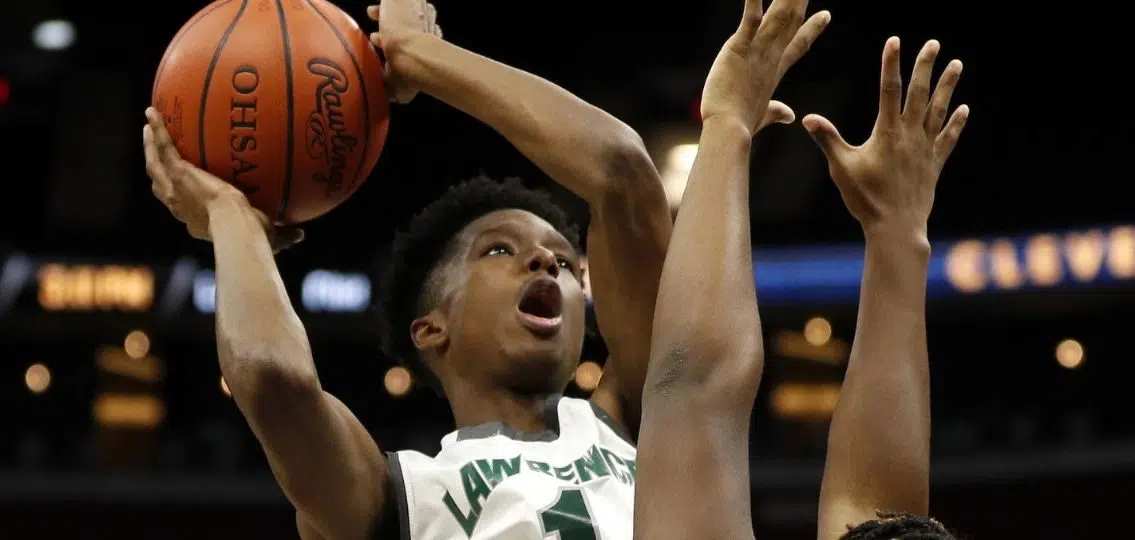If you are parenting a teen with a learning difference, you’re likely laser focused on helping them achieve academic success. With the extra time it takes to complete homework and go to tutoring, their days—and yours—are full to the brim. Emotional bandwidth may also be in short supply.
So, when someone suggests they should join drama club or the volleyball team to strengthen their college application, your knee-jerk response might be: How can this possibly fit into their schedule? Or more importantly, what if it distracts the from keeping on track with schoolwork?
The idea of adding anything to your teen’s busy life may sound daunting, but there’s actually a multitude of good reasons students who learn differently should clear some room in their schedule to get involved in extracurriculars.
The Benefits of Extracurriculars for Teens with Learning Differences
A Chance to Shine
The administrators at Lawrence School, which specializes in teaching students with dyslexia, dysgraphia, dyscalculia, and ADHD, firmly believe that athletics and extracurriculars are actually fundamental for all teens, especially ones who struggle with learning and attention differences.
Many students with learning differences find themselves frustrated and depleted from the increased demands of the academic school day, as ReGinae Goodwin Reynolds, director of campus life at Lawrence, explains.
“They need an organized outlet to be able to find their niche and where they are able to shine outside of the classroom,” says Reynolds. “Extracurricular activities provide an organic opportunity for them to meet new people and find out for themselves what they’re really good at.”
What About Grades?
If you’re worried about your teen’s grades, you’re not alone. Many parents are hesitant to encourage their teen to join a sport or an afterschool club. They often think their grades will suffer as a result. Some schools don’t even allow students to take part in extracurriculars unless they keep their GPA at a certain level, says Reynolds.
By contrast, Lawrence school—which offers more than 50 clubs and athletic teams at their Upper Campus, with nearly 100% participation by students—has found that joining extracurriculars can actually improve a student’s academic performance.
“Students who get involved in extracurricular activities not only find their passion, they make friends with common interests, have fun, and develop skills and confidence that travel back into the classroom,” says Shanika Lovelace, high school director at Lawrence.
“Authentic success and consistent feedback allow our students to grow by leaps and bounds,” she adds.
| [adrotate banner=”230″] |
Boosting Self-Esteem
Living with a learning difference can be an emotional struggle. Joining extracurriculars offers a way to increase self-confidence, and to get a taste of what it means to be successful in a non-academic setting.
Bryan Cioffoletti, Lawrence’s athletic director, sums it up perfectly. “I can’t even count how many times I’ve witnessed my student athletes come out of their shells and become a completely different person while playing a sport.”
Cioffoletti says that the kids he works with blow him away with their amazing talent and abilities. He often sees their self-confidence grow right before his eyes.
“Giving them the ‘release’ of sports and other extracurriculars after a stressful day can completely change their mind’s direction from what they may have looked at as a failure earlier in class to a victory where they are the best version of themselves,” Cioffoletti says.
Skills for Life
Improved grades and increased self-esteem aren’t the only benefits that Lovelace sees when it comes to joining extracurriculars. Her high schoolers end up developing the leadership abilities and key life skills we want all young adults to develop, not only those with learning differences. (Note: many employers also value these so-called “soft skills”.)
According to Lovelace, some of those include:
- Strong time management
- The ability to accepts and deliver constructive feedback
- A team mentality
- Grit—or the ability to bounce back from adversity
- An appreciation of diverse viewpoints
Creating Lasting Memories
It’s understandable that as a parent of a teen with a learning difference, you might still feel hesitant to add anything else to your teen’s already full plate. But giving your child the gift of extracurriculars is something that will shape your teen’s outlook on life for years to come.
When you think about your own high school experiences, what you probably remember most were the times you spent bonding with teammates on the soccer field. Or maybe you remember those long hours rehearsing for the school musical.
These are the experiences that stand out to Lawrence School’s alumni, too.
“We know that what our students do outside of the classroom is what they will remember and hold dearest,” Reynolds describes. “Our alumni all recount their experiences on stage, on playing fields, and various other extracurriculars as the best memories of their high school experience.”




